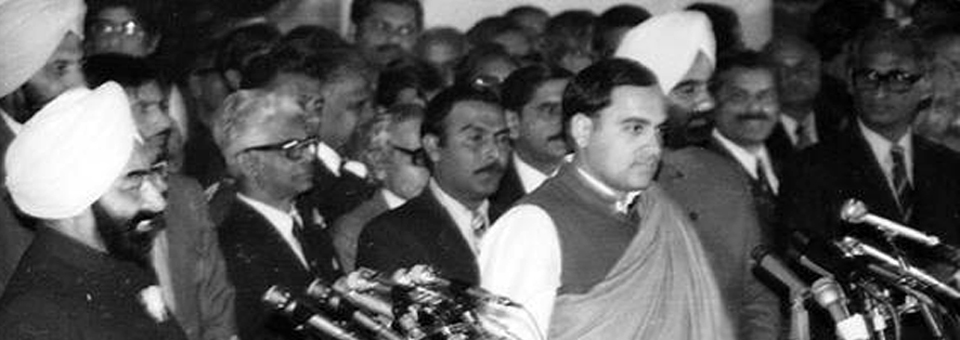Last week I delivered a talk at a University Sikh society where a considerable number of students (and non-students) filled the room and almost entirely remained throughout a 2.5 hour lecture and Q&A session. I was quite surprised by the attendance because I am used to teaching as few as three students sometimes in my weekly Sikh Studies course! But despite the large number of attendees, I was left a little baffled when two separate activities which I had set were met with a muted response. The first was to think of a favourite book and how it had made them feel; the second was to name somebody in their lives that was their go-to person when they had a problem. With each activity when I asked for a volunteer to share their response I was met with blank faces. It has troubled me in the nine days since: what fear has manifest itself inside us so much that we daren’t share some fairly inocuous notions amongst our peers?
The activities at the lecture I mention above were actually responded to by five of those in attendance, out of a room in excess of fifty people. It wasn’t completely silent, but that was about the extent of the responses that were forthcoming. The activities were not a test, but a lead into a part of the lecture that I was going to find difficult to explain; in setting the activities I was making a point pertaining to the subject matter of the lecture using personal association. I’ve wondered since what those in attendance thought my intentions were behind setting the activities. The truth is that it is always interesting for a lecturer or speaker to learn something from those they are imparting knowledge and experience to – learning is certainly a two-way street – and I was particularly looking forward to hearing a range of book titles and people that had inspired this audience.
It is today quite a difficult thing to do – to ask for a response, feedback or advice. It is as if we don’t want to open ourselves up to criticism for fear of being seen as less than perfect (as if any of us are actually perfect!) We are becoming, if we are not already, a society that is plagued by fear of being seen for who we really are. Perhaps some of those at the lecture might have been too afraid to say that the last book they had read was in Secondary School or that a book that actually meant something to them contained more pictures than words. The reason why I find the lack of responses so perplexing is that this was a room full of Sikhs, with one exception; if anybody in the World should not be worried about what other people think of them, it’s a Sikh (we tend to stand-out in both looks and deeds)!
Perhaps the non-responsiveness was less about fear of personal criticism and based more on a fear of speaking without having had their thoughts validated first? I find far too many of the teenage and twenty-something generation are hesitant to speak their minds without ensuring that any response is supported or at the very least acceptable amongst their peers. If that is true even in the slightest, then we are living in dangerous times indeed, reminiscent of the scenes depicted in William Golding’s ‘The Lord of the Flies’. Whilst I don’t believe we’re quite in that state yet, it would explain the growing resistence to publicly appreciate or support endeavours that we find pleasing, but which might demean us amongst our peers. Take for example a Youtube series we created called ‘Cover to Cover‘ reviewing Sikh and Punjabi books. The view counts are quite limited, never more than a couple of hundred which we had expected because it is a niche subect matter for a select audience. But what we hadn’t expected was that we would find so few patrons for the series who would share the video, comment on it, disagree or agree with our summation, or even feature in our viewers favourite book section (the show has not actually aired for a number of week since the New Year because of a shortage of these clips). Surely the albeit small Sikh/Punjabi-book-loving World would have recognised the series for what it was and supported it, but despite a regular vewership of a couple of hundred, none of them ever really spoke out about it.
This reasoning is partly why I decided to write this article for we have a University bhangra competition coming up called Capital Bhangra that has run for the past two years. In that time the competition has grown providing a platform for teams who otherwise had no other outlet to compete against one another on a competitive stage. And yet I still find a publicly muted show of support from many of those who have been aided by the competitions existence. There are of course notable exceptions – people who we supported in their early days by promoting them at the competition, who have now reached bigger stages but still appreciate the event (thanks Inkquisitive!) – but it is the everyday people i’m thinking of. In a similar but selfish vain, I was told following the University Sikh society lecture by a member of the audience that it was an amazing insight into the subject matter and that they and many others had thoroughly enjoyed it. However, I’m still waiting to see the ideas I presented, publicly promoted by them or indeed anybody who was at the lecture. Like the books that inspire them, and like their go-to people, blank faces and silence speaks volumes.





